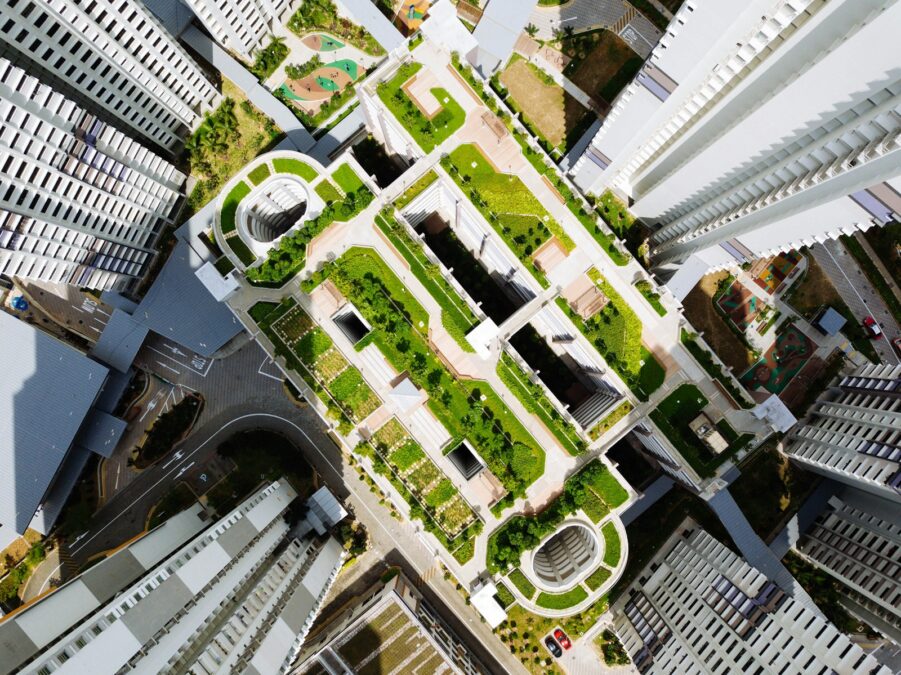Frameworks for Assessing and Recognizing Sustainable Buildings
The Role of Green Building Certifications in Sustainable Development
Green building certifications, such as LEED, BREEAM, and WELL, provide comprehensive frameworks for assessing and recognizing the sustainability performance of buildings. These certifications are essential for promoting sustainable development and encouraging the adoption of environmentally friendly practices in the construction and operation of buildings. In regions like Saudi Arabia and the UAE, where rapid urbanization and development are ongoing, green building certifications play a crucial role in ensuring that new projects meet high sustainability standards. Cities like Riyadh and Dubai are increasingly adopting these certifications to enhance their environmental performance and promote sustainable urban growth.
LEED (Leadership in Energy and Environmental Design) is one of the most widely recognized green building certification programs globally. It evaluates buildings based on various criteria, including energy efficiency, water usage, materials selection, and indoor environmental quality. By achieving LEED certification, buildings demonstrate their commitment to sustainability and energy conservation, making them more attractive to environmentally conscious investors and tenants.
BREEAM (Building Research Establishment Environmental Assessment Method) is another prominent certification system that assesses the sustainability of buildings. BREEAM covers a wide range of criteria, including energy, water, health and well-being, pollution, transport, materials, waste, ecology, and management processes. This holistic approach ensures that buildings certified under BREEAM are not only energy-efficient but also contribute positively to the environment and society. The integration of BREEAM in regions like the UAE and Saudi Arabia can significantly enhance the sustainability performance of new developments.
Innovative Approaches to Green Building Certification
The integration of Artificial Intelligence and Blockchain into the certification process can further enhance the accuracy and transparency of green building assessments. AI can analyze vast amounts of data related to building performance, identifying patterns and providing insights that can optimize sustainability strategies. For instance, AI algorithms can monitor energy consumption and suggest improvements, ensuring that buildings operate at peak efficiency and meet certification requirements.
Blockchain technology enhances the transparency and security of the certification process. By creating an immutable ledger of data transactions, Blockchain ensures that all information related to building performance and certification is accurate and tamper-proof. This transparency builds trust among stakeholders, including developers, investors, and regulatory authorities. In regions like the UAE and Saudi Arabia, where trust and reliability are paramount, Blockchain can facilitate the widespread adoption of green building certifications.
The Metaverse and Generative Artificial Intelligence also offer innovative solutions for managing and optimizing the certification process. The Metaverse provides a virtual environment where stakeholders can visualize and interact with building performance data, enabling better planning and collaboration. For example, city planners in Dubai can use the Metaverse to simulate the impact of various sustainability measures, assess potential benefits, and develop comprehensive green building strategies. Generative AI can enhance the design of sustainable buildings by creating optimized configurations that maximize energy efficiency and environmental performance.
Business Success Through Green Building Certifications
For business executives, mid-level managers, and entrepreneurs, achieving green building certifications is a strategic decision that can drive business success and sustainability. In regions where environmental regulations are becoming stricter, such as Saudi Arabia and the UAE, obtaining certifications like LEED, BREEAM, or WELL can ensure compliance with local and international standards, reducing the risk of penalties and enhancing the company’s reputation.
Leadership and management skills are crucial in implementing effective green building strategies. Business leaders who prioritize the integration of green building certifications demonstrate a commitment to sustainability and innovation. This proactive approach not only protects the business’s bottom line but also enhances its reputation as a responsible and forward-thinking organization. In regions like Riyadh and Dubai, where economic stability is closely tied to sustainable development, such foresight is invaluable.
Moreover, the adoption of green building certifications can provide businesses with a competitive edge. Companies that can demonstrate their commitment to sustainability are more likely to attract investment and customer loyalty. By leveraging the latest in green building technology and certification standards, businesses can position themselves as industry leaders, setting an example for others to follow. This commitment to innovation and environmental responsibility not only ensures business success but also contributes to the overall health and well-being of the community.
Conclusion: The Future of Green Building Certifications
As we look to the future, the adoption of green building certifications will continue to play a crucial role in enhancing sustainability and promoting environmental responsibility. The integration of AI, Blockchain, the Metaverse, and generative AI represents a transformative approach to green building, offering unprecedented efficiency and reliability. For regions like Saudi Arabia and the UAE, these advancements are essential for ensuring a sustainable and environmentally responsible future.
In conclusion, the continuous enhancement of green building certification processes through the integration of real-time data and advanced technologies is not just a technological advancement but a necessity for modern urban living. It reflects a commitment to leveraging innovation for the greater good, ensuring that we are always prepared for the unexpected. As we move forward, it is imperative that we continue to invest in these technologies and integrate them into our sustainability frameworks, setting the stage for a greener and more sustainable future.
#GreenBuilding #Sustainability #LEED #BREEAM #WELL #ArtificialIntelligence #Blockchain #Metaverse #EnvironmentalManagement #SaudiArabia #UAE #Riyadh #Dubai #BusinessSuccess #Leadership #ManagementSkills #ProjectManagement

